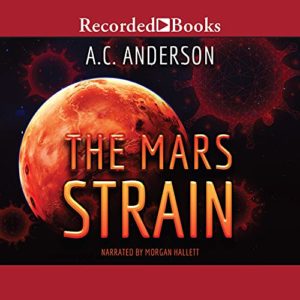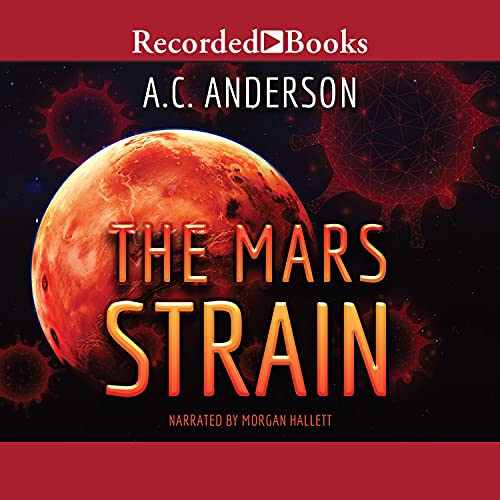

RITA ® Award-Winning Author of Fantasy Romance



 Saw this doglike creature at Meow Wolf. I loved how the matte metal body faded into the shadows while its quizzical bright face popped, ears perked. You could press the eyes, too, and make them bobble. One of the great things about Meow Wolf is you can touch everything. I wandered through the place in the excellent company of Nnedi Okorafor and she’s like me – she commented, “It’s not real for me unless I can touch it.” So very true.
Saw this doglike creature at Meow Wolf. I loved how the matte metal body faded into the shadows while its quizzical bright face popped, ears perked. You could press the eyes, too, and make them bobble. One of the great things about Meow Wolf is you can touch everything. I wandered through the place in the excellent company of Nnedi Okorafor and she’s like me – she commented, “It’s not real for me unless I can touch it.” So very true.
I’ve been thinking lately about how I rate the books I read. You know – three stars, five stars, whatever. Everyone has their own set of criteria. Although, I do hear a lot of conversations where people discuss how they assign ratings and wanting to validate their systems in comparisons to others. Some people say it’s like the US Grading system of A, B, C, D and F, with five stars equivalent to an A. Very often these same folks say that three stars is a good rating, even though they agree it’s equivalent to a C.
Probably this goes back to what kind of students we were in school, but I was the overachieving kind who got upset at anything lower than an A.
Still, in school a grade serves to indicate a student’s understanding of the subject taught (or should), while a book rating should convey how much we enjoyed it. Or, it might be intended as a valuation. How “good” is the book?
A lot of things play into this second way of looking at rating a book. How we want other people to view us plays in. We want to be viewed as being discerning, as having the intelligence and taste to know “good” stories from “bad.” I put those valuations in quotation marks because I think a lot of people call something good or bad when what they mean is that they do or don’t like it.
Not the same thing at all.
BUT, calling something we don’t like “bad” gives us a bit more intellectual authority, at least on the outside.
Recently I saw a screed by a Big Name Author (BNA) who said they get in trouble for giving books they liked ratings of 2.5. They went on at some length, justifying how 2.5 was a great rating when they don’t finish (DNF) 90% of the books they read. What went unsaid was the implication that there should be plenty of room to somehow “crown” the truly beloved books with a 5.0.
I also saw a rando Goodreads reviewer give a book a 3.81 rating – which was in the review itself, as Goodreads doesn’t allow for tenths of points, much less hundredths. I didn’t look beyond that, partly because I rolled my eyes so hard I strained an oculomotor muscle and couldn’t focus quite right for a few minutes.
I mean, really?
This is attempting to create an impression of precision where there is none. We are not judges at the Olympics adding or subtracting points for technicalities and difficulty. It’s a story. There are no finite scorable elements like touching a second foot down following a triple axle. Reading is a subjective experience.
So, while I understand the impulse to “reserve” the best scores for the most beloved books, I wonder at what that really accomplishes. And I say that as someone who used to worry about my reputation if I rated a book too highly and other people began to question my motivations or integrity.
I don’t worry about that any more.
After all, I judge for a number of contests and I have plenty of opportunity to apply scoring to decide which books I think deserve the highest accolades. But for general reading? I’ve come to the point where there’s room for an infinite number of five-star books in my world. Five-stars means I loved reading it. What happens if I find a book I loved reading more? Also five stars. I’m not sure everything in life needs to be relentlessly ranked in comparison to everything else.
I’ve also stopped rating and reviewing every damn thing I buy because I’m tired of spending my time in service to retailers, but that’s another rant for another time.
Basically it comes down to that I love books. I love to read. If I love a story, I don’t feel the need to judge it down to tenths and hundredths of points. I’m not assigning a grade to provide incentive to the author to do better.
I’m just saying I enjoyed the hell out of it.
Here’s Jackson figuring out how to walk on the treadmill. Such a smart kitty. This was last week and today he was jumping on and walking beside me as I typed this.
This cat invented monkey-see, monkey-do.
I’ve been thinking about reviews lately. Now that the release date for Platinum is drawing nigh, the number of reviews and Goodreads rankings is going up. I’ve really had to stop reading all of them, because I’ve found that I’m aware of all these readers’ eyes as I’m writing, and not in a good way. I write more slowly than I want to and find myself second-guessing whether someone will pick on this or that. Or if this thing will be a dealbreaker for that reader who hated this other thing. It’s kind of like trying to write in a coffee shop full of people talking loudly about your other books. Even the good chatter is distracting.
Occasionally I’ll read one, so I can retweet it or send it to my website people to post. But I only do that if I know the person gave it 4 or 5 stars.
I know. I’m the pansy my stepfather always exhorted me to not be.
The thing is, the 3-star and and lower reviews stick with you, leaving a bad taste in your mouth. The meanness that can be behind those sentiments (not always, sometimes it’s just a fair “not for me”) works like a poison. Here’s an example of how that works.
I get a lot of spam comments on this blog – like upwards of 30/day. It’s not too bad, because they all go to the spam filter, which is amazingly efficient. I just have to empty it every once in a while. Kind of like purging the septic tank. I used to read through, in case real comments went to spam, but that’s only happened once. (I’m looking at you La Tessa – what HAVE you been up to, girl??) Mostly it’s not worth it. Sometimes I look through a few, just for grins.
There’s one brand that’s really nasty. The intent is clearly to garner attention by standing out. Now that I want to find one, there weren’t any. But they go along the lines of “Clearly you have no idea what you’re talking about. Maybe if you were less sloppy, lazy and stupid, I would have come back to this blog.” What will be funny is that it will be on a post saying, oh, that I signed with my agent or something. I *know* that it has nothing to do with what I wrote, or with anything at all, and it WILL STILL BOTHER ME ANYWAY.
Never ceases to amaze me. So works the human psyche, I suppose.
At any rate, this is the other thing I’m trying to remember – a lower star rating doesn’t mean someone didn’t like the book.
No, really. Because I did this recently. I read Gone Girl by Gillian Flynn. (Actually I listened to it on Audible, for what it’s worth.) There were some things that bothered me here and there – I thought some of the plot was over-contrived, some of the prose struck me as trying too hard. And I really hated the ending. If you’ve read it, I’ll discuss privately, but I won’t spoiler it. When I went to rank it on Goodreads, I nearly gave it 3 stars, but the ending bothered me so much. (For the record, it was not because I wanted a Happy-Ever-After.) But then I thought about how the story had captured me and how truly original and interesting the premise is, so I reluctantly bumped it up to 4 stars.
I’ll tell you what: I’ve recommended that book to more people in the last several months than any book in recent years.
See? My star rating, 3 or 4 or whatever, seems to have nothing to do with my personal word of mouth. Because, even if I think you might not like how it ends, I think you’ll still love reading it.
Chalk one up to experience.